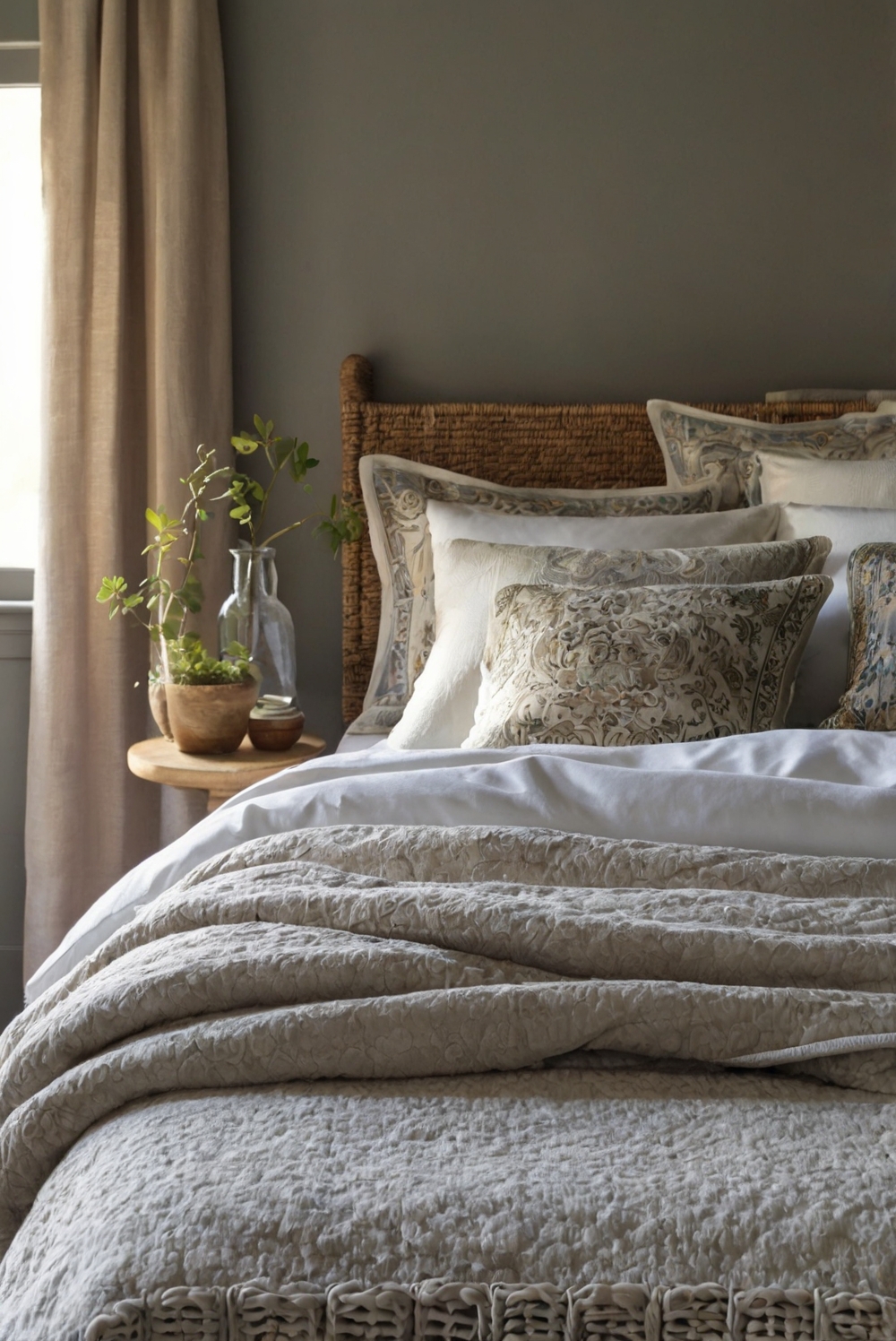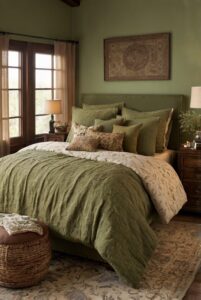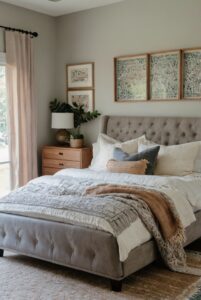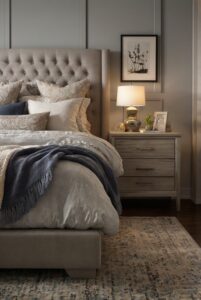Curious about hypoallergenic bedding? Explore how incorporating this into your bedroom can enhance comfort and promote better sleep quality. Join us for daily interior designer insights.
**What are the advantages of using hypoallergenic bedding in the bedroom?**
Using hypoallergenic bedding in the bedroom offers various benefits for individuals with allergies or sensitive skin. Hypoallergenic bedding is designed to reduce allergens such as dust mites, pet dander, and mold, promoting better sleep quality and overall health. It can also help prevent skin irritation and respiratory issues, making it an excellent choice for those with allergies. Additionally, hypoallergenic bedding is often made from natural materials like bamboo or cotton, which are sustainable and eco-friendly. Investing in hypoallergenic bedding is a practical step towards creating a healthy and comfortable bedroom environment.
Advantages of using hypoallergenic bedding in the bedroom:
– Allergy Relief:
Hypoallergenic bedding is specifically designed to reduce allergens such as dust mites, pet dander, and pollen. This can help individuals who suffer from allergies to have a more restful night’s sleep without triggering allergic reactions.
– Improved Sleep Quality:
By using hypoallergenic bedding, you can create a cleaner and healthier sleep environment. This can lead to improved sleep quality, as allergens are minimized, allowing you to breathe easier and sleep more soundly.
– Skin Protection:
Hypoallergenic bedding is often made from natural materials that are gentle on the skin. This can help prevent skin irritation and reactions, making it ideal for individuals with sensitive skin or skin conditions like eczema.
Additional benefits of hypoallergenic bedding:
– Durability:
Hypoallergenic bedding is typically made from high-quality materials that are designed to last. Investing in hypoallergenic bedding can be a cost-effective choice in the long run, as it is durable and resistant to wear and tear.
– Eco-Friendly:
Many hypoallergenic bedding options are made from organic and sustainable materials, making them environmentally friendly. By choosing hypoallergenic bedding, you can support eco-friendly practices and reduce your carbon footprint.
In conclusion, using hypoallergenic bedding in the bedroom offers a range of advantages, from allergy relief and improved sleep quality to skin protection and eco-friendliness. By making the switch to hypoallergenic bedding, you can create a healthier and more comfortable sleep environment for yourself and your loved ones.
1. What are the advantages of using hypoallergenic bedding in the bedroom?
Hypoallergenic bedding is beneficial for individuals with allergies or sensitive skin as it is made from materials that are less likely to trigger allergic reactions. These materials include natural fibers like cotton or bamboo, which are less likely to harbor dust mites or other allergens. Hypoallergenic bedding is also often treated with anti-microbial agents to further reduce the presence of allergens. By using hypoallergenic bedding, individuals can experience fewer allergy symptoms, better sleep quality, and overall improved comfort in their bedroom environment. It is a great investment for those looking to create a healthier and more comfortable sleep environment.
2. How does hypoallergenic bedding improve sleep quality?
Hypoallergenic bedding can improve sleep quality by reducing allergic reactions that can disrupt sleep. Allergens like dust mites, pet dander, and pollen can trigger allergies and lead to symptoms like sneezing, coughing, and congestion, which can make it difficult to fall asleep or stay asleep. By using hypoallergenic bedding, individuals can minimize exposure to these allergens, resulting in better sleep quality and a more restful night’s sleep. This can lead to feeling more refreshed and energized in the morning, ultimately improving overall well-being.
3. What are the different types of hypoallergenic bedding available?
There are various types of hypoallergenic bedding available to suit different preferences and needs. Some common options include hypoallergenic pillows, mattress protectors, duvet covers, and sheets. These products are typically made from natural materials like organic cotton, bamboo, or silk, which are less likely to harbor allergens. Additionally, hypoallergenic bedding may be treated with anti-microbial agents or have special features like dust mite barriers to further reduce allergen exposure. By choosing the right type of hypoallergenic bedding for your needs, you can create a healthier and more comfortable sleep environment.
4. Are there any studies supporting the benefits of hypoallergenic bedding?
Several studies have shown the benefits of using hypoallergenic bedding for individuals with allergies or asthma. Research has found that hypoallergenic bedding can reduce exposure to allergens like dust mites and pet dander, leading to decreased allergy symptoms and improved sleep quality. A study published in the Journal of Allergy and Clinical Immunology found that using allergen-impermeable covers for pillows and mattresses significantly reduced exposure to dust mites and improved asthma symptoms in children. These findings highlight the importance of hypoallergenic bedding in creating a healthier sleep environment for individuals with allergies or asthma.
5. How can I choose the best hypoallergenic bedding for my needs?
When selecting hypoallergenic bedding, there are several factors to consider to ensure you choose the best option for your needs. First, look for bedding made from natural materials like organic cotton, bamboo, or silk, as these are less likely to trigger allergies. Additionally, consider the features of the bedding, such as anti-microbial treatment or dust mite barriers, to further reduce allergen exposure. It’s also important to choose bedding that is easy to clean and maintain, as regular washing can help eliminate allergens. By taking these factors into account, you can select hypoallergenic bedding that meets your needs and helps create a healthier sleep environment in your bedroom.




